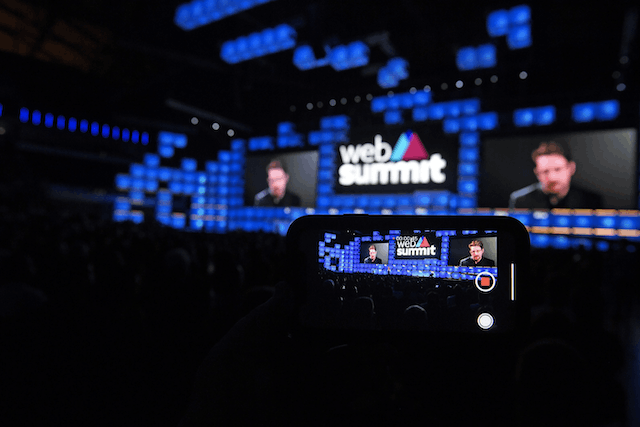46.3% women
Of the 70,469 participants of this year’s Web Summit, 46.3% are female--the highest ever for the event, and an intentional outcome on the part of the organisers. Among them are women heading the startups expected to make a buzz in 2020. Case in point: Banjo Robinson, headed by Kate Boyle, helps children learn to read and write in a unique and fun way, through a globetrotting cat, who returns personalised letters to youngsters from all around the world. 90% of children write back to Banjo, including from locations where English language education might not be so accessible. Boyle announced they’d just closed a 7-figure pre-seed investment to take them to the next level.
Nikki Michelsen and Leah Remfry-Peploe of Ohne also created quite a stir with the crowd. Ohne aims to rethink managing women’s cycles, not just during their periods. They are proponents of the use of CBD products to help manage various aspects of those cycles.
Louise Lindblad also presented Valispace, founded in 2016 by her and two other engineers from the aerospace industry. The goal was to streamline largescale engineering processes--for example, in building complex satellites--by rethinking collaboration tools. Among the entities to use their product are the European Space Agency, ispace and Airbus.
“Lisbon is like the Bay area 50 years ago”
Women execs in larger companies also took to the stage--among them Michelle Zatlyn, COO and co-founder of Cloudfare. In September, the 2m-customer-strong cybersecurity company saw its shares rise by 20% on its first day of public trading.

Co-founder of Cloudflare, Michelle Zatlyn, during the opening night of Web Summit 2019. Photo by David Fitzgerald/Web Summit via Sportsfile
Zatlyn praised the Web Summit’s host city and its talented engineering hub, adding that “Lisbon is like the Bay area 50 years ago”.
“GDPR is a paper tiger”
Edward Snowden, who in 2013 exposed the mass surveillance being carried out by the American intelligence establishment, calls technology “value neutral [and] an amplification of individual power.” When asked his thoughts on General Data Protection Regulation (GDPR), he said the problem is already in the name--that it “isn’t data protection, it’s data collection”.
For Snowden, GDPR a “good first effort”, but not a solution. “Even though the GDPR does propose 4% of global revenue fines for internet giants, today those fines don’t exist.” Until such companies “comply with the spirit of the law”, GDPR is “a paper tiger [giving] a false sense of reassurance”.
The whistleblower calls on a “redesign of the basic system”, given that data collected today about people is still too abstract.
750m today don’t have access to water
That’s according to Gary White, co-founder of Water.org--but “the poor can be part of the solution” as well, through innovative financial solutions--not just technology. Jaden Smith, co-founder of 501CTHREE.org and Just Water, shared the stage with him, talking about how Just Water deployed a mobile water treatment system which helped communities remove lead from water in Flint, Michigan (US), at the rate of 10 gallons per minute.
163 countries
The Web Summit brings together this year 163 countries total, including over 2,100 startups and more than 2,000 journalists. No surprise, then, that the opening ceremony started late as crowds lined up hours in advance to enter the Altice arena…
